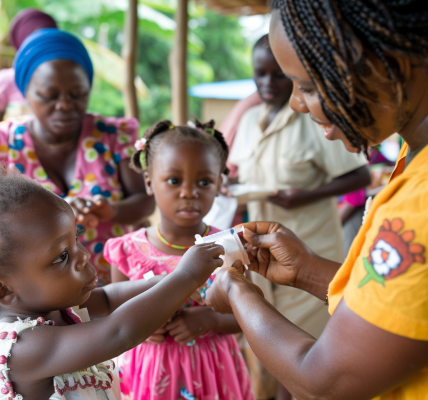Recent genetic sequencing has unveiled the presence of the novel clade 1b mpox virus in Zambia and Zimbabwe, indicating a concerning spread of the virus across various regions in Africa. This alarming update was shared by Dr. Jean Kaseya, Director-General of the Africa Centres for Disease Control and Prevention (Africa CDC), during a weekly briefing.
Dr. Kaseya emphasized that the African region is currently witnessing an average of 2,800 new mpox cases weekly, underscoring the ongoing challenge of controlling the virus. The Democratic Republic of the Congo (DRC) has been the epicenter of the outbreak, but Uganda is also experiencing a significant rise in cases, particularly among sex workers, with 184 new cases reported in the past week alone.
Since the beginning of the year, African nations have documented a staggering total of 53,903 mpox cases, resulting in 1,109 fatalities. In the past week, there were 2,836 new cases, 34 of which were fatal, highlighting the urgent need for effective public health measures.
Vaccination efforts are underway in the DRC and Rwanda, with plans to initiate a campaign in Nigeria on November 18. However, a notable concern arises as children account for approximately 36% of reported cases. The Bavarian Nordic Jynneos mpox vaccine, currently in use, is not authorized for younger children, creating a critical gap in the vaccination strategy across the region.
Dr. Ngashi Ngongo, who leads the mpox incident management team at Africa CDC, mentioned that discussions are ongoing regarding the donation of the LC16 vaccine by Japan, which was previously used to vaccinate children aged 2 to 5 years in 1974. The anticipated arrival of this vaccine by the end of the year could provide much-needed support in combating the outbreak.
During the briefing, Dr. Kaseya noted that the Africa CDC’s mpox emergency committee convened last week to review the latest data. The committee members expressed expectations for a rise in cases before a potential stabilization and decline as the new year approaches. They urged nations to utilize the mpox response as an opportunity to tackle other health threats, such as measles, and to enhance surveillance, local manufacturing capabilities, and healthcare infrastructure.
In a related development, the Africa CDC’s diagnostic advisory committee recently approved the first real-time PCR (RT-PCR) test developed in Africa, manufactured by a Moroccan company. Dr. Kaseya highlighted that the test met rigorous criteria and is cost-effective, marking a significant step towards empowering local manufacturers of diagnostic tools and other epidemic-related products.
He affirmed the commitment of Africa CDC to collaborate with these manufacturers and key stakeholders to ensure the availability of essential diagnostic tests and medical supplies across the continent. This initiative aims to strengthen Africa’s response to current and future health emergencies, fostering self-reliance in public health capabilities.
The ongoing mpox outbreak serves as a stark reminder of the vulnerabilities faced by health systems in Africa. As cases continue to rise, the need for comprehensive vaccination strategies, effective diagnostics, and robust healthcare frameworks becomes increasingly critical. The Africa CDC’s proactive measures and collaborative efforts with local manufacturers represent a hopeful step towards improving health outcomes and mitigating the impact of mpox and other infectious diseases in the region.
With the situation evolving rapidly, health authorities and organizations are urged to remain vigilant and responsive to the changing dynamics of the mpox outbreak, ensuring that resources and support are directed where they are most needed.





